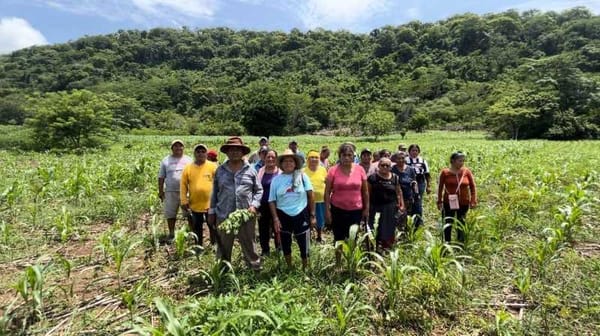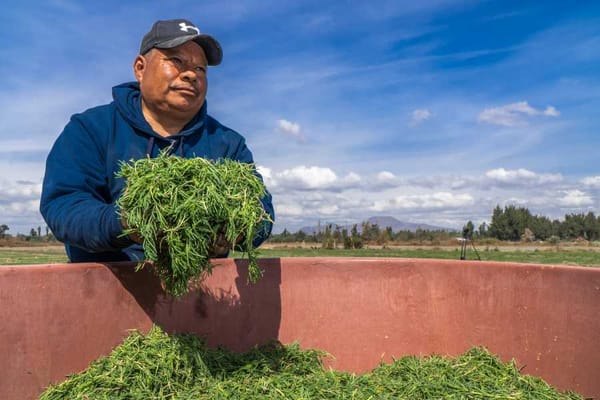Troubadour, jaranero, sonero and Mexican versifier, Arcadio Hidalgo
Arcadio Hidalgo, troubadour, jaranero, sonero, and Mexican versifier, was the owner of an extraordinary mastery of popular poetic improvisation.

Mexican troubadour, jaranero, sonero and versifier, Arcadio Hidalgo was the owner of an extraordinary mastery of popular poetic improvisation. He was born in the middle of the Porfiriato, in the Hacienda de Nopalapan, today an ejido and congregation of the municipality of Juan Rodríguez Clara, on January 12, 1893. When he was very young, he joined the revolutionary movement of Ricardo Flores Magón's Mexican Liberal Party.
His jarana and his verses, genuinely jarocho, were disseminated thanks to the recordings made with the group Mono Blanco. His poetic work was compiled by Gilberto Gutiérrez and Juan Pascoe in the book La versada de Arcadio Hidalgo, published in 1985 by Fondo de Cultura Económica.
"To speak of Arcadio Hidalgo is to refer to the traditional music of Veracruz, to the mischievousness, to the agility of thought and word, to the joy for life, to the facility to make friends, to the rough but loving work in the fields and to so many other things..." This is how Miguel Ángel Cruz defined the musician in a note that appeared in the newspaper Unomásuno on July 11, 1984, on the occasion of his death.
"I am like my jarana,
with a heart of cedar,
that's why I never break
and my chest is a bell;
and my country trova is
like the song of the goldfinch,
that's why I am a jaranero
and I tune my throat well
and my heart raises
a wind over the pasture".
Arcadio Hidalgo's approach to music came mainly from his father, but was also shaped by the vast musical and poetic tradition of his homeland. Listen to Arcadio Hidalgo and Antonio García de León's interpretation of El carpintero. In this son, a lover asks a woodpecker to act as messenger to his beloved.
In Arcadio Hidalgo's décimas we can find as themes: the countryside and its charms and works; agrarianism and the Revolution; religiosity and magic, pride; disappointment contrasted with hope, and love. According to Hidalgo, El siquisirí is a son that can be used to dedicate a tenth or a verse to a woman or simply to attract her attention.
In a recording made in 1978, at Radio Educación's Estudio A, Arcadio Hidalgo says that if, while playing El buscapié, you see a good dancer who looks suspicious, you have to take a good look at him, because you are likely to see a normal foot and a rooster's foot; the devil is a great zapateador and appears in the fandangos summoned by this son.
Arcadio was about twenty years old when he joined "la bola" under the orders of Magonista General Hilario Salas and served as a messenger, spy, and later, personal assistant to General Ernesto Griego. He was in the armed struggle for about ten years. With the triumph of Obregón, he returned to his peasant life. Thus, throughout his songs we can find the imprint of revolutionary experience and rhetoric. Listen to El trompo accompanied by an anecdote, in Hidalgo's voice, about his participation in the Mexican Revolution.
Arcadio Hidalgo (January 12, 1893 - July 7, 1985) was born and raised in Nopalan, a large hacienda during the Porfiriato period, where cattle work lasted long days. At the end of the work, the farmhands would distract themselves by singing stories and anecdotes through the son jarocho; listen to one of them captured in the Toro zacamandú (Zacamandú bull).
The theme of love is present to a great extent in the work of Arcadio Hidalgo, who approaches it in a mischievous, sensual or romantic way. La llorona and Las poblanas are examples of this.




